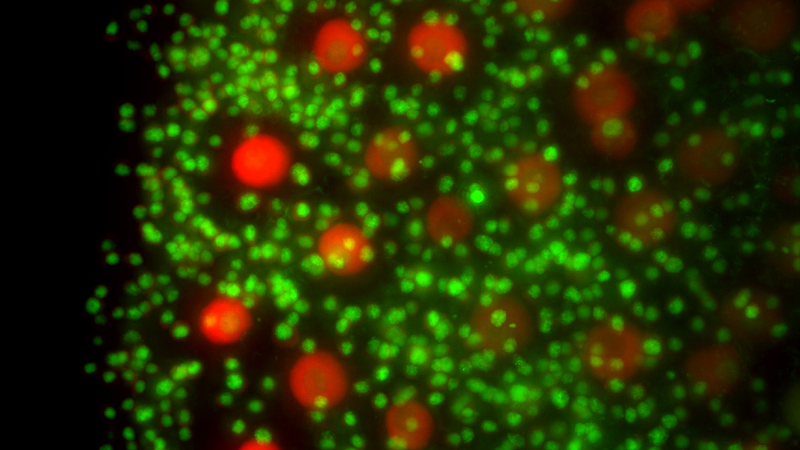Finding the genes controlling ovarian reserve could hold key to better female fertility care
Research Highlight | June 21, 2018
For a woman to conceive and deliver a healthy baby, thousands of genes have to work correctly and together. These include genes controlling fertility factors such as the ovarian reserve, the capacity of ovaries to produce viable and fertilizable oocytes (eggs). Deficiencies in the ovarian reserve can lead to infertility and an increased incidence of miscarriages, birth defects and premature ovarian failure.
This genetic complexity stands in the way of developing accurate predictive genetic tests for female fertility and reproductive lifespan. Such tests would be especially valuable for women who are postponing childbearing or experiencing fertility problems, and for pediatric cancer patients undergoing treatments toxic to their developing ovaries.
Jackson Laboratory Assistant Professor Ewelina Bolcun-Filas, Ph.D. , is looking at how multiple genetic factors regulating oocyte development determine the differences in each woman’s ovarian reserve. Bolcun-Filas has received a five-year grant totaling $2,165,475 from the Eunice Kennedy Shriver National Institute of Child Health and Human Development to investigate these genetic factors, using special, genetically diverse mouse populations.
Identifying the many gene variants that contribute to ovarian reserve may provide women with new diagnosis and treatment avenues for fertility problems, and unprecedented insight and control over their lifelong fertility.
Eunice Kennedy Shriver National Institute of Child Health & Human Development, Grant Number 1R01HD093778-01: Genetics and Genomics of the Ovarian Reserve and Female Fertility
Caption: Green stained cells represent eggs in the ovarian reserve, and large red ones show early growing eggs. Jackson Laboratory image courtesy of Ewelina Bolcun-Filas, Ph.D.

